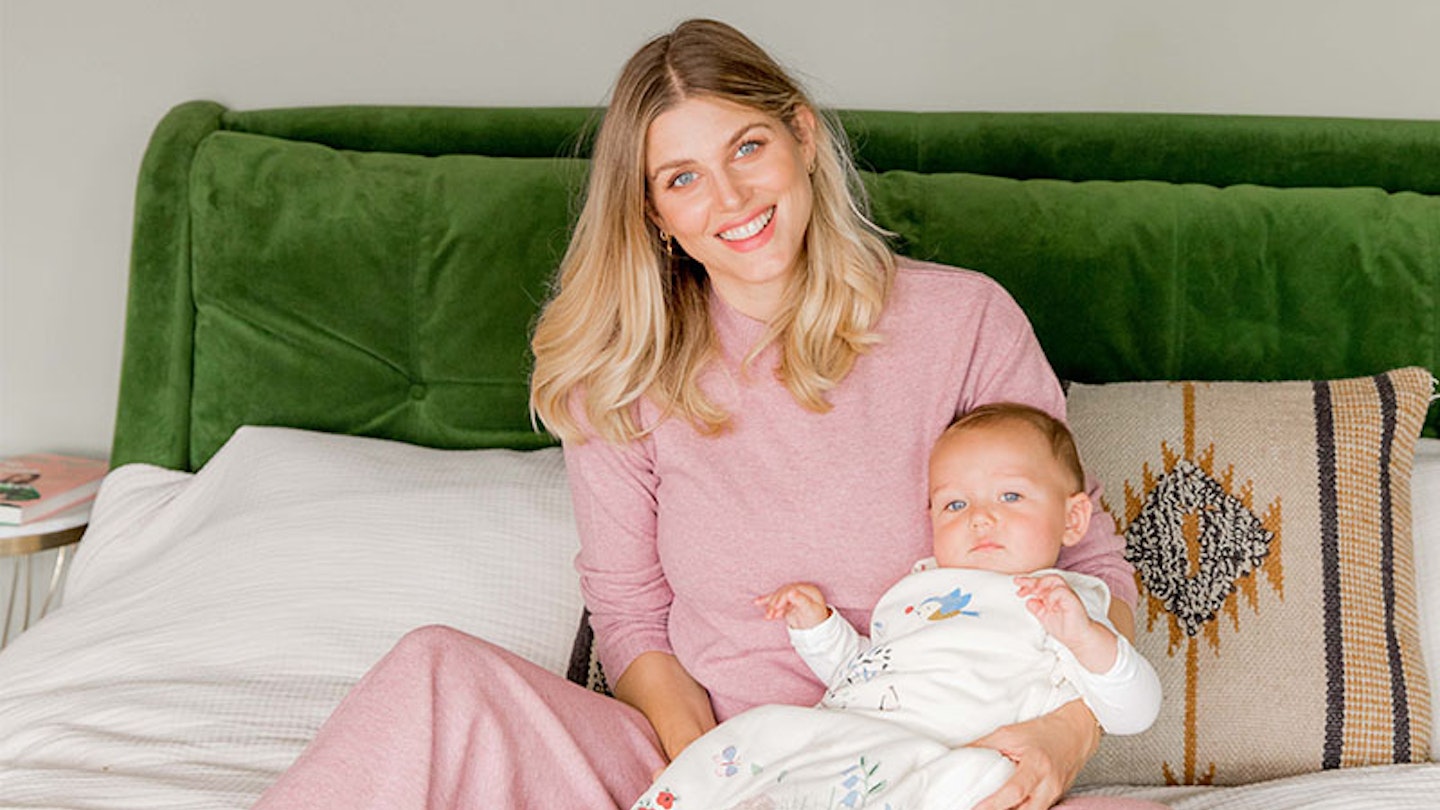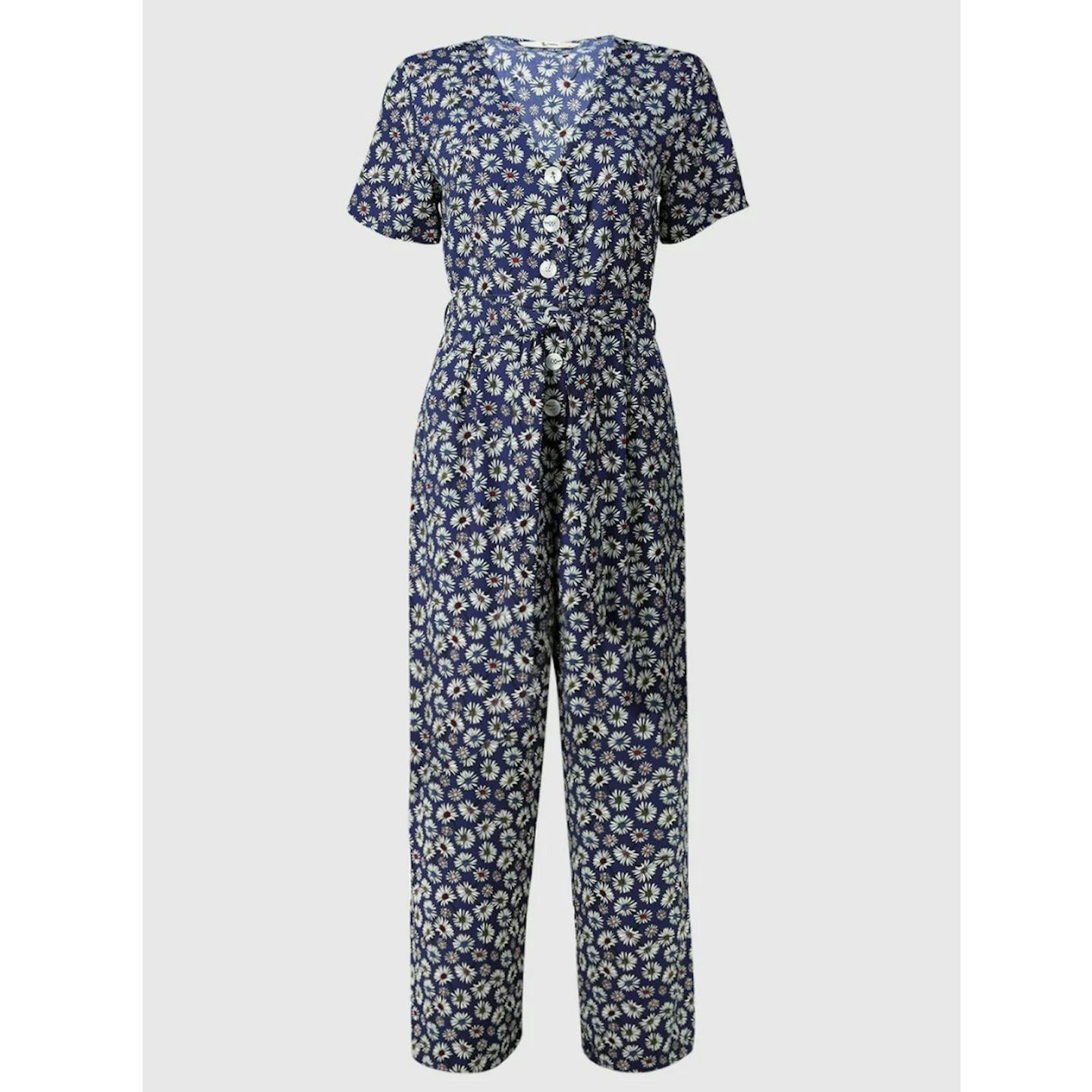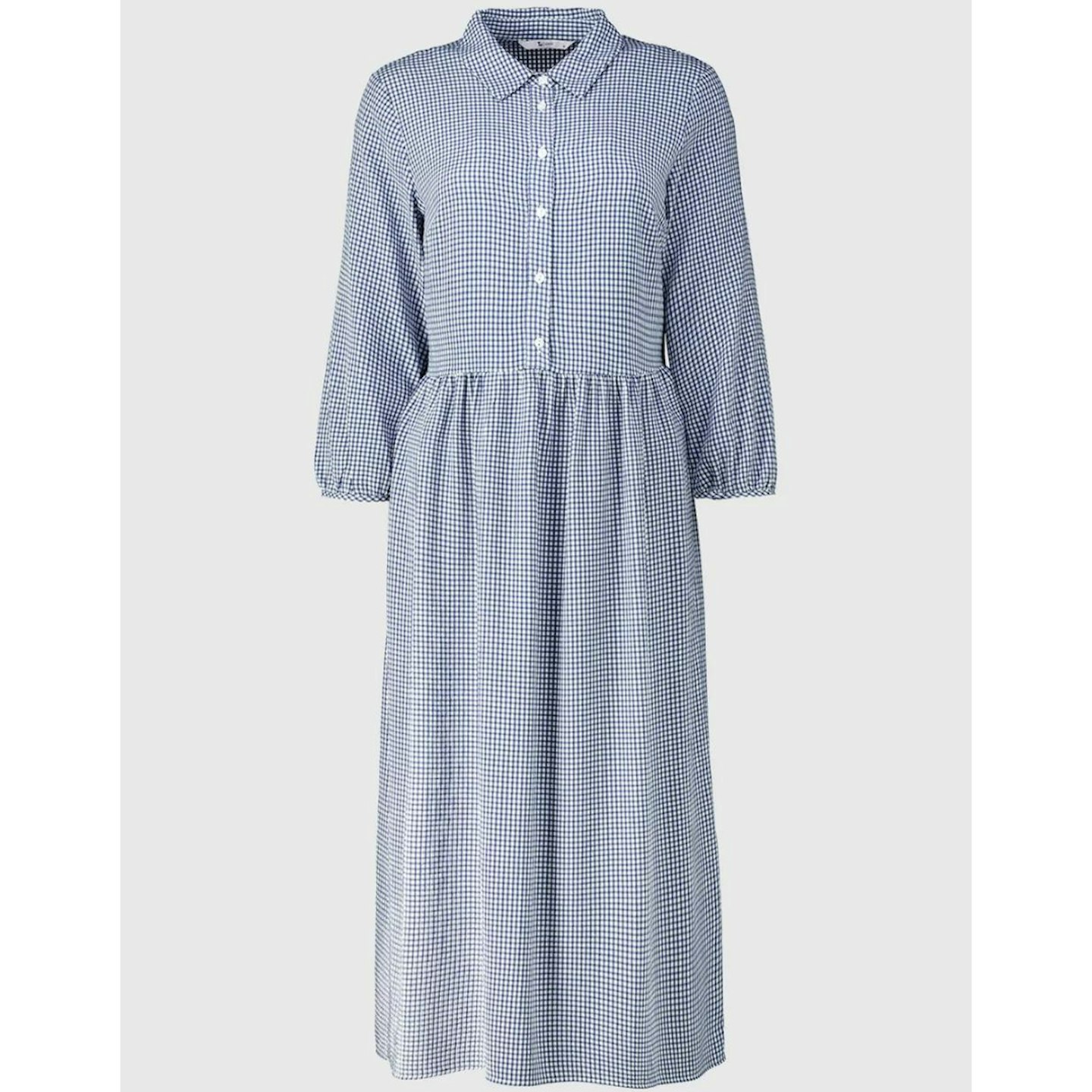We sat down with presenter, DJ and mum, Ashley James, to chat about her new clothing edit with Tu at Sainsburys, how to feel body confident postpartum and why we all need our very own ‘magic mirror’...
“I really love the slogan ‘9 months in 9 months out’ as I feel like it kind of takes the pressure off mums,” says Ashley.
“I think a lot of people don't realise how much of a psychological hurdle it is to try and dress to feel good, especially as clothes are so expensive now. I remember thinking when my bump was starting to show at around three months that I wanted to look good, but I also didn’t want to buy things that would only fit me now, because I knew I had this whole other journey ahead.
“This is what I really love about the edit, it’s clothes that’ll see you through and also that fit different parts of your pregnancy journey. They’re comfort clothes but they're also really nice fashionable clothes and I think that's what's so important, because a lot of the time, maternity stuff is either one or the other.”
Ashley’s collection includes affordable fashionable items for mums pre and post pregnancy, from pretty jumpsuits to cosy joggers, as well her favourite baby picks.
“I actually love the wide leg jumpsuit. As soon as I put it on I was like ‘oh my boobs look good and everything looks really nice’” she says.
“I also really love the black relaxed jumpsuit too. I think black is always such a flattering colour, but it's also a really useful colour when you've got a baby, because it doesn't show stains.
“I wore it with some trainers and so many people were like ‘I love your jumpsuit’ and I was like ‘it's actually maternity’ and they couldn't believe it. Also, the dinosaur tracksuit for babies, I just think is the cutest thing ever, it's so nice!”
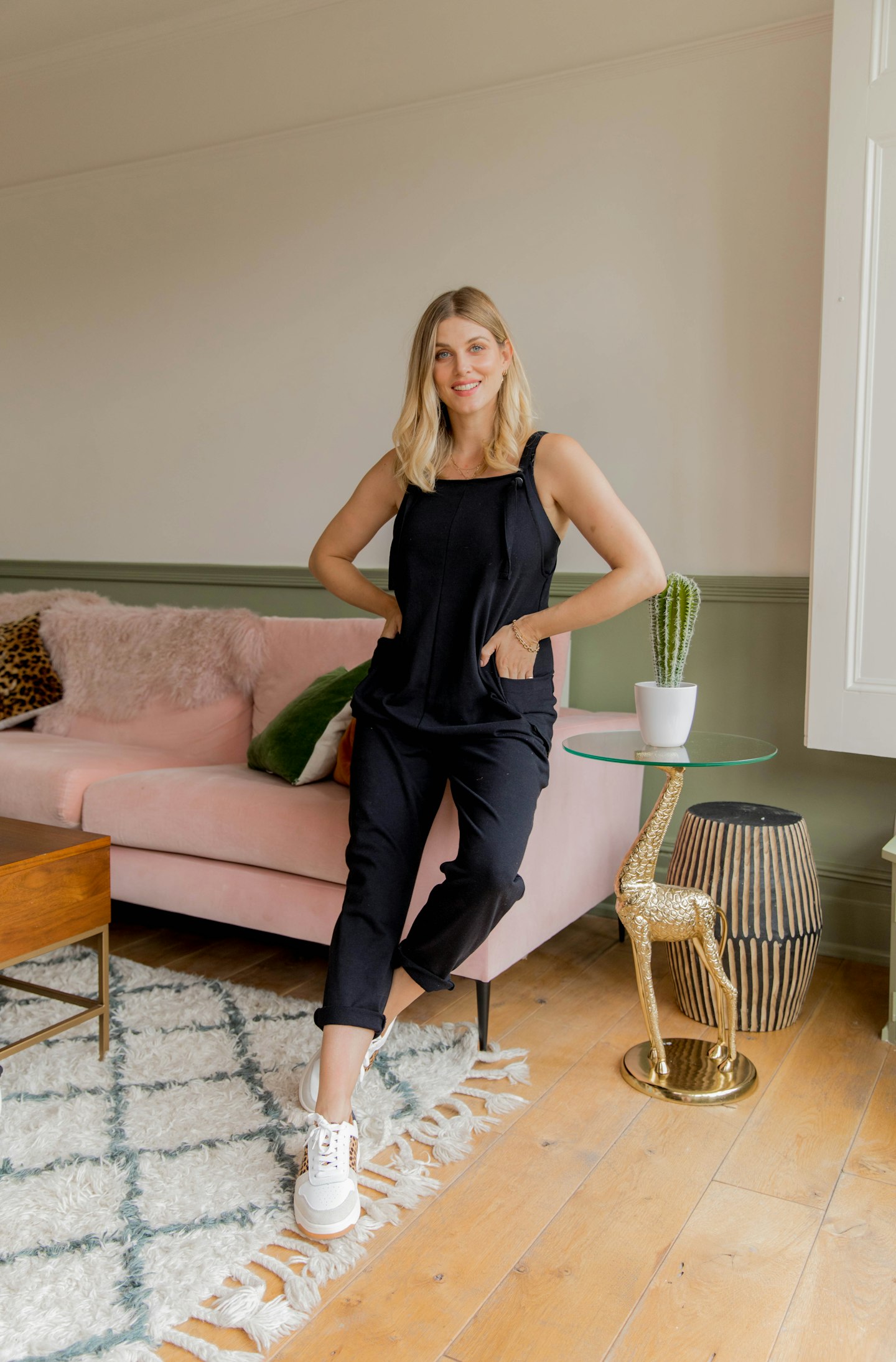
How did you learn to fall in love with your postpartum body?
“I think it's trying to appreciate your body for what it's done and not beat it up for how it looks, because it is different but that's not good or bad.
“I was actually looking at my boobs this morning and I think because I'm ill and dehydrated they've gone really shrively and I was like oh my God, because I used to look at old people and their skin would be like that. But I had to be like no, do you know what? I’m doing an amazing thing. I'm feeding my son, I'm giving him good antibodies while I'm sick and actually my boobs are amazing and those slight marks are actually like a sign of it.
“It's really cringy, but I always say stretch marks and lines are like a tattoo from mother nature and most people pay for tattoos because they want to remember something, whereas it's almost like mother nature's way of saying ‘you did that, well done’.
“So I think it's just trying to change your perception and trying to not see yourself as like a body that needs work done to it to get back to how it was.”
Why do you think there's less body positivity postpartum and what do you think needs to be done to change this?
“I guess when you're growing a baby it does feel like a miracle and people are genuinely quite fascinated, but when you're postnatal, the only conversation that you ever see is about weight and whether or not someone ‘gets back to normal’.
“Even that term ‘baby weight’ it's such a rank way to look at it. Your body has literally housed this baby and done everything it can to grow it and then the moment the baby's out, it's considered ‘baby weight’ that you just need to shift, plus it's not even healthy to shed baby weight too early.
“Talking about weight with a postnatal body takes away so much of what being postnatal actually means in terms of the recovery too. Whether that's your pelvic floor, piles or prolapses. It's so frustrating that society is so fixated on weight because you don't need to be the same size as you were before to be valuable and beautiful.
“I feel like there'd be less shallow talk of weight and losing weight after childbirth if people really understood how much more there was to the postnatal body than just whether or not it looks like it did before.”
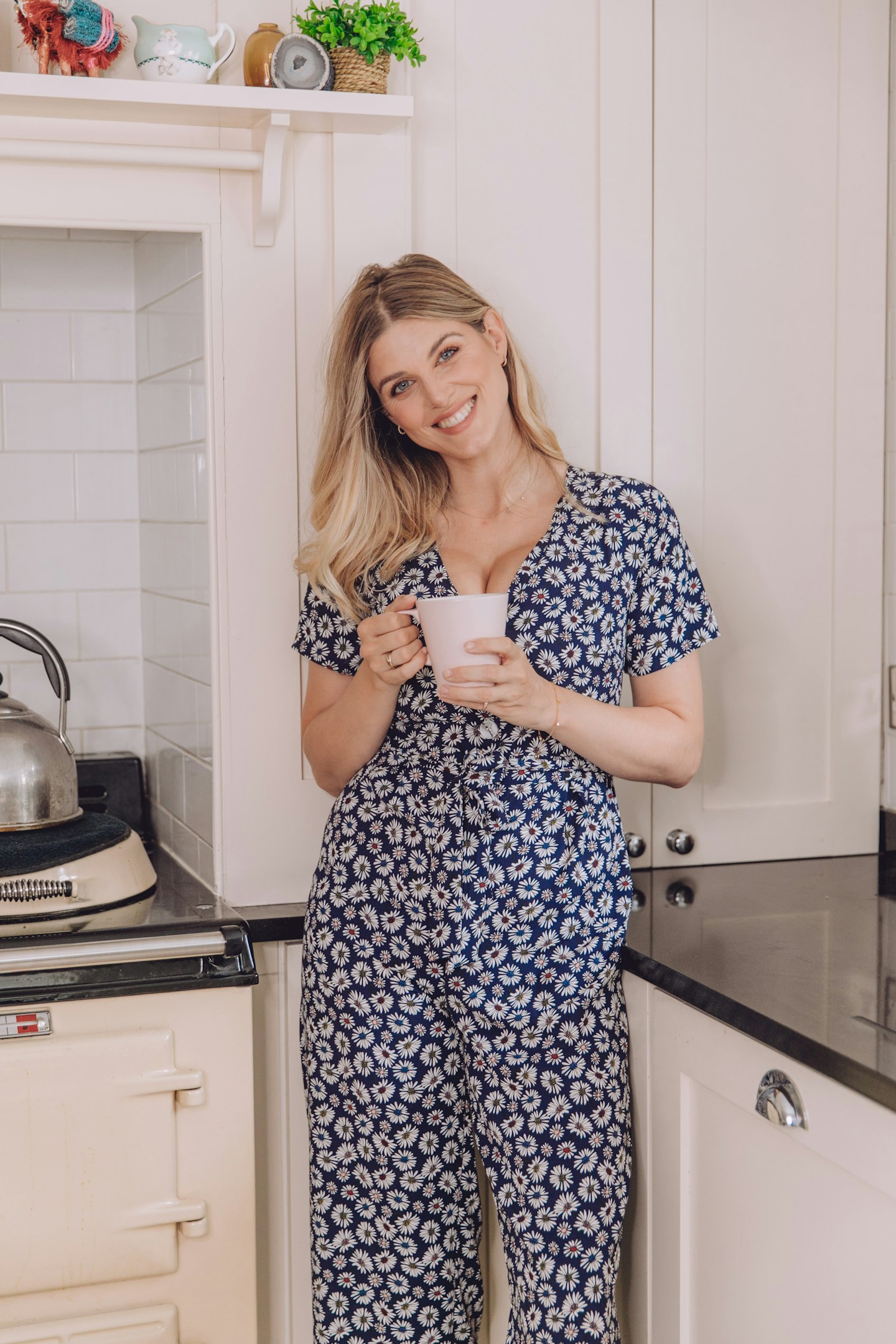
How do you counter negative thoughts about your body?
“The other day when I was looking in the mirror I was like, I wish I had a magic mirror that would just hype me up when I’m down and be like ‘no, girl, you look great!’ and then I was thinking, technically, we all have a magic mirror in a way, because it's how we speak to ourselves.
“It’s the same if I were to go up to my friend and say ‘I feel horrible’ my friend would be like ‘you look amazing don't speak to yourself like that’ and that's what I tell myself when those negative thoughts creep into my mind.
“I might not have the magic mirror, but I do have my mind to be like ‘don't be horrible about yourself’ and I think, for me, dressing in clothes and lingerie plays a big part in me being my own hype woman. I'll put on an outfit that makes me feel good and it will instantly transform how I feel about myself. So I think it's a combination of being your own magic mirror and your own hype woman.”
Have you found yourself struggling with your mental health more since becoming a mum?
“My mental health has definitely been up and down, but not so much during pregnancy because I found that when the world felt like it was almost ending, being pregnant gave me this really positive hope, like I had something more important than myself to worry about.
“I worried when I gave birth, because I've had depression in the past and I get anxiety, so I thought that must mean that I’d getpostnatal depression, but I didn't.
“I was on cloud nine, up until about four months and that's when my mental health did start to waver, which took me by surprise. It was almost when the world opened up again that I realised how different life was, and I started to question who I am, what I was before and how much can I be that person again and also just getting used to the maternal load, which I think is really hard to understand until you're in that.
“If I start comparing or start worrying, I think the future can wait; like parties, DJing, all that kind of stuff. It's a bonus if I can do it, but if I can't, that's all there in the future, but what is never going to be in the future is your baby being a baby and that really grounds me.”
How have you learned not to care about other people’s opinions when it comes to breastfeeding?
“But with breastfeeding there are so many challenges, like I haven't got my independence back as quickly as I would have hoped before having a baby and I've had to deal with things like mastitis, rashes and comments from people thinking it's an intimate thing to be breastfeeding. For me I'm not sharing my journey to put it in anyone's face, I'm just trying to show my reality and I think it's really important to show the pros and the cons.
“I breastfed on Jeremy Vine, and a lot of people were like ‘oh attention seeking’ and ‘you're trying to make a point’. But even if that was my intention, Alf can't get on board with it, he's just a baby. In a way I was happy it happened because it shows the reality of a breastfeeding mother and that there isn't a convenient time. My baby is the most important thing and if it makes someone feel uncomfortable, then that's very much their issue, not my issue.
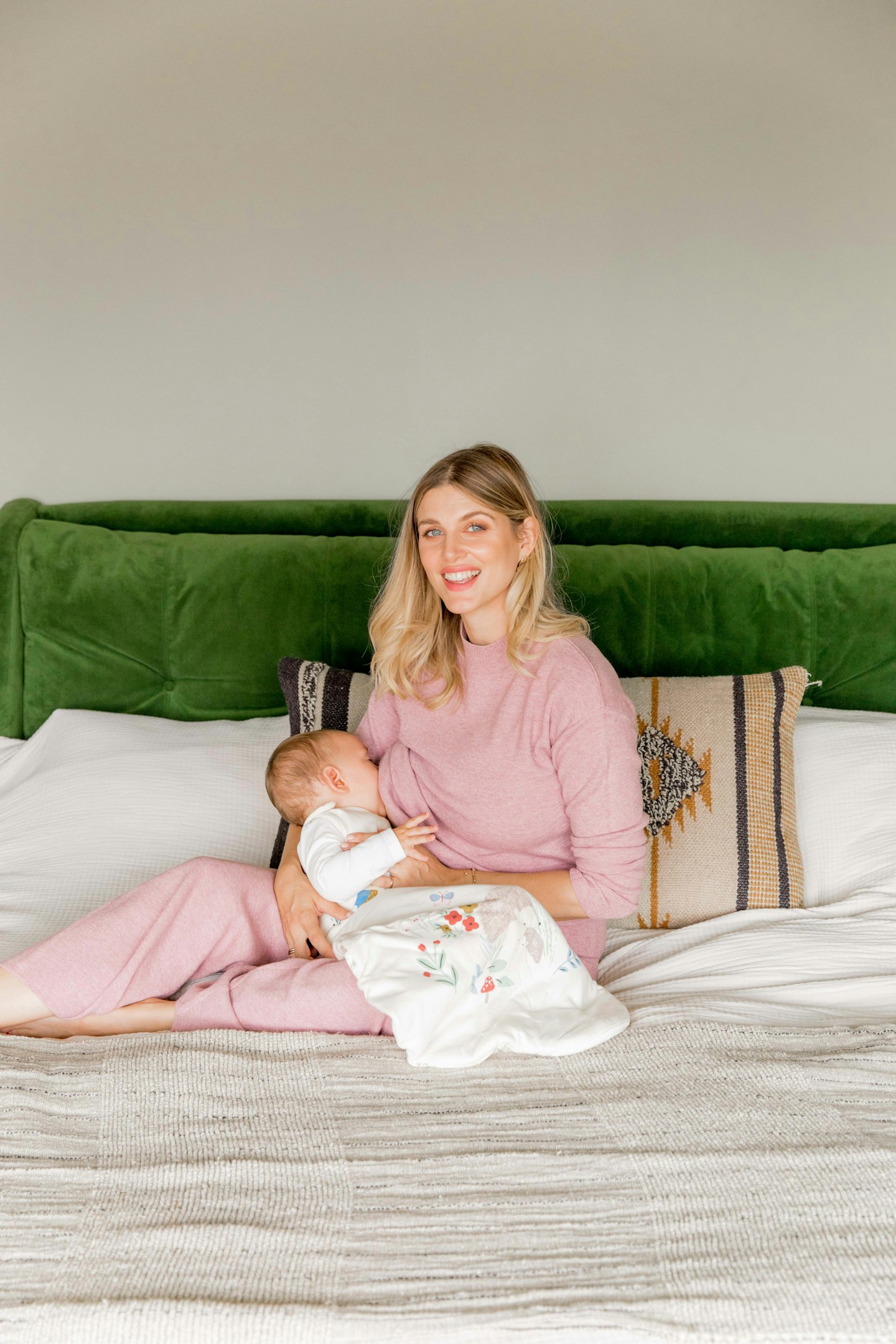
"I just look forward to the day where mums and everyone can celebrate people for however, they choose to feed their babies. I'd love for there to be more support for those women who did want to breastfeed, so they don't feel like it's taken away from them, and I'd love for attitudes in general around breasts to change."
What tips or advice would you give to help mums embrace their bodies postpartum?
“I think just try to celebrate your body and remember that how it looks is not the end. It takes nine months to grow a baby, but we expect it to almost go back to this level of ‘normal’.
“I don't know why we have six weeks or eight weeks in our head, maybe it's because that's when you have your babies’ vaccinationsand then I presume that’s when you’re signed off ready to go back to exercise and so by then you should be feeling ‘normal’, but my hips are definitely changing and I'm eight months postpartum. All bodies are so different and I think we just need to stop with the pressure and expectations.
“I keep saying to Tom, if the baby were a weight, people would say that we're exercising all the time, but people are obsessed with saying ‘are you going back to exercise?’ and it's like I've literally been weightlifting every day, I'm constantly picking up a baby and I'm doing it on little sleep.
“Just be kind to yourself and don’t compare how you look, because that's as useful as comparing your body to when you were 12 years old. There are loads of people who are beautiful and all different shapes and sizes, so it doesn't matter what size you are now.
“Stop looking in your wardrobe at clothes that don't fit you; put all your pre pregnancy clothes in storage bags, maybe they'll fit again, maybe they won't, but what's important now is that you wake up every day and you've got clothes that make you feel good. Your body is still working, and still recovering, so you should be proud of that."
Ashley James plays Parenting Confessions
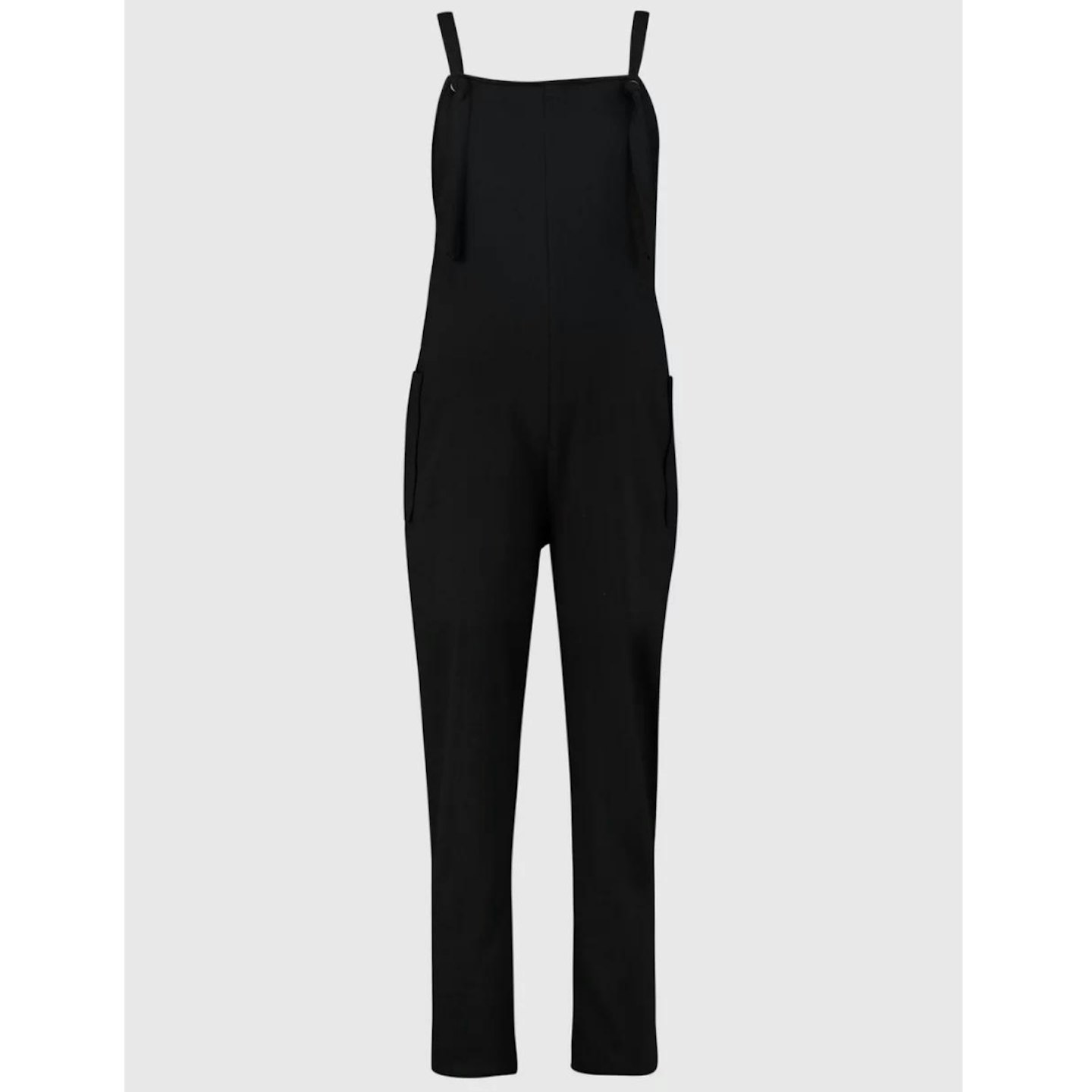
tuclothing.sainsburys.co.uk
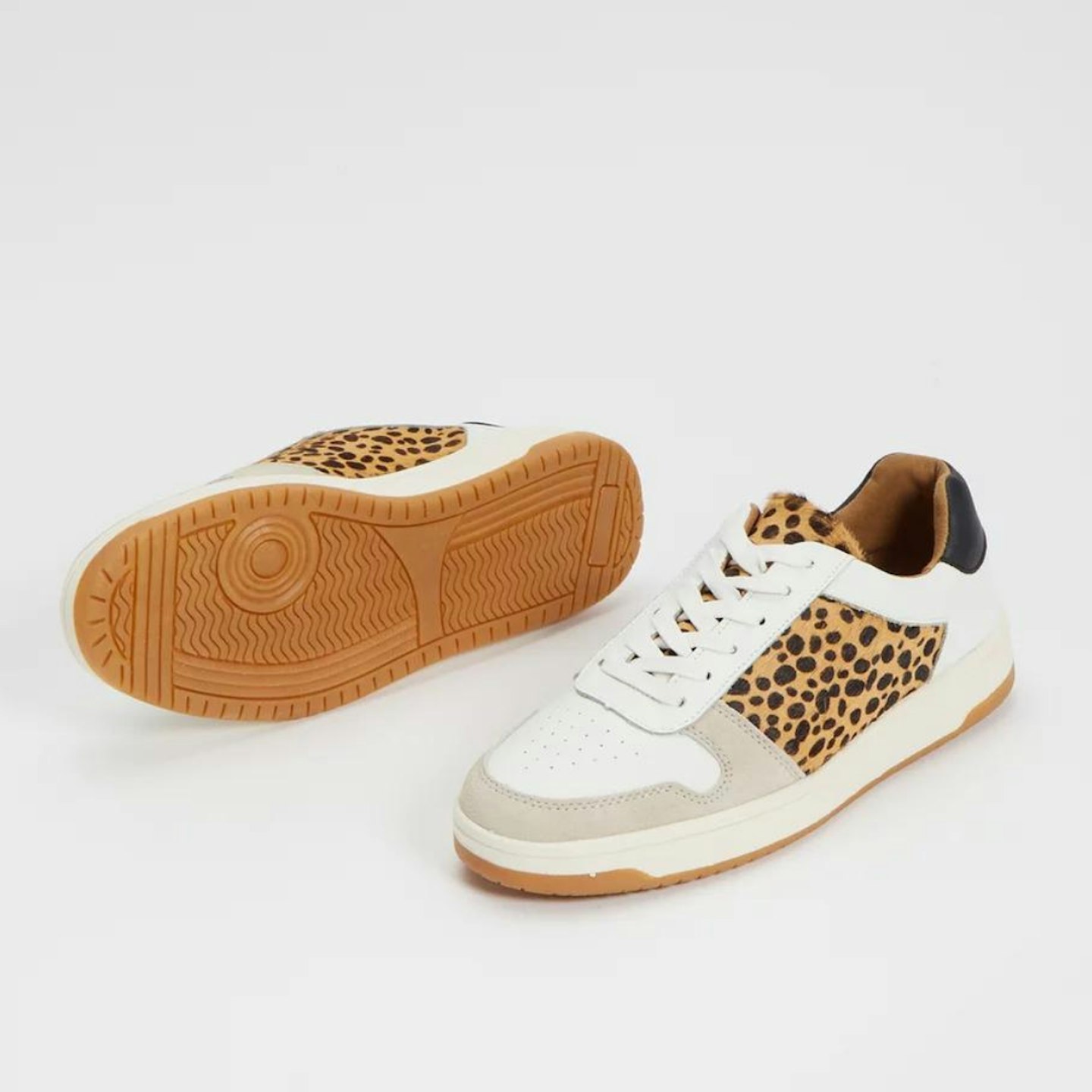
tuclothing.sainsburys.co.uk
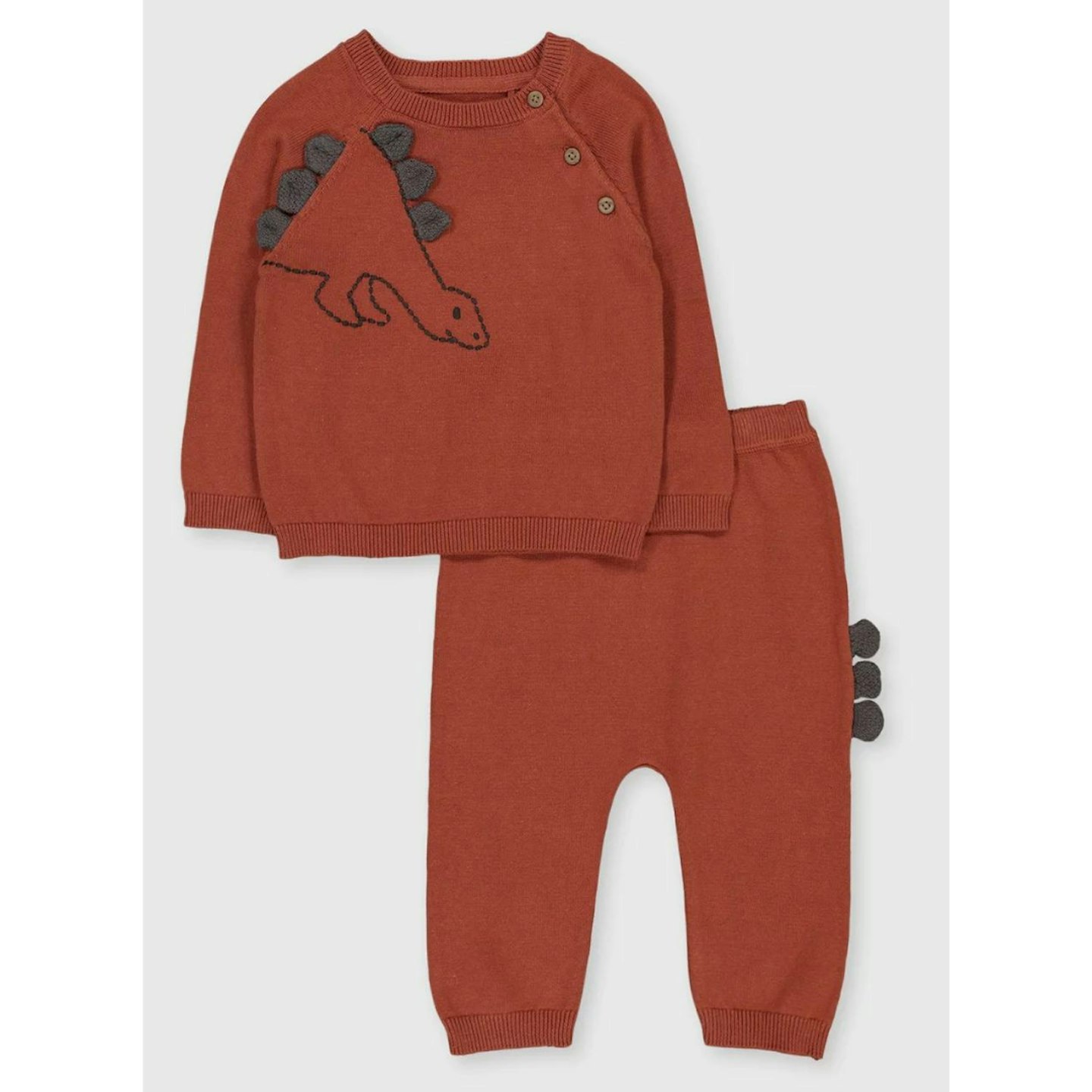
tuclothing.sainsburys.co.uk
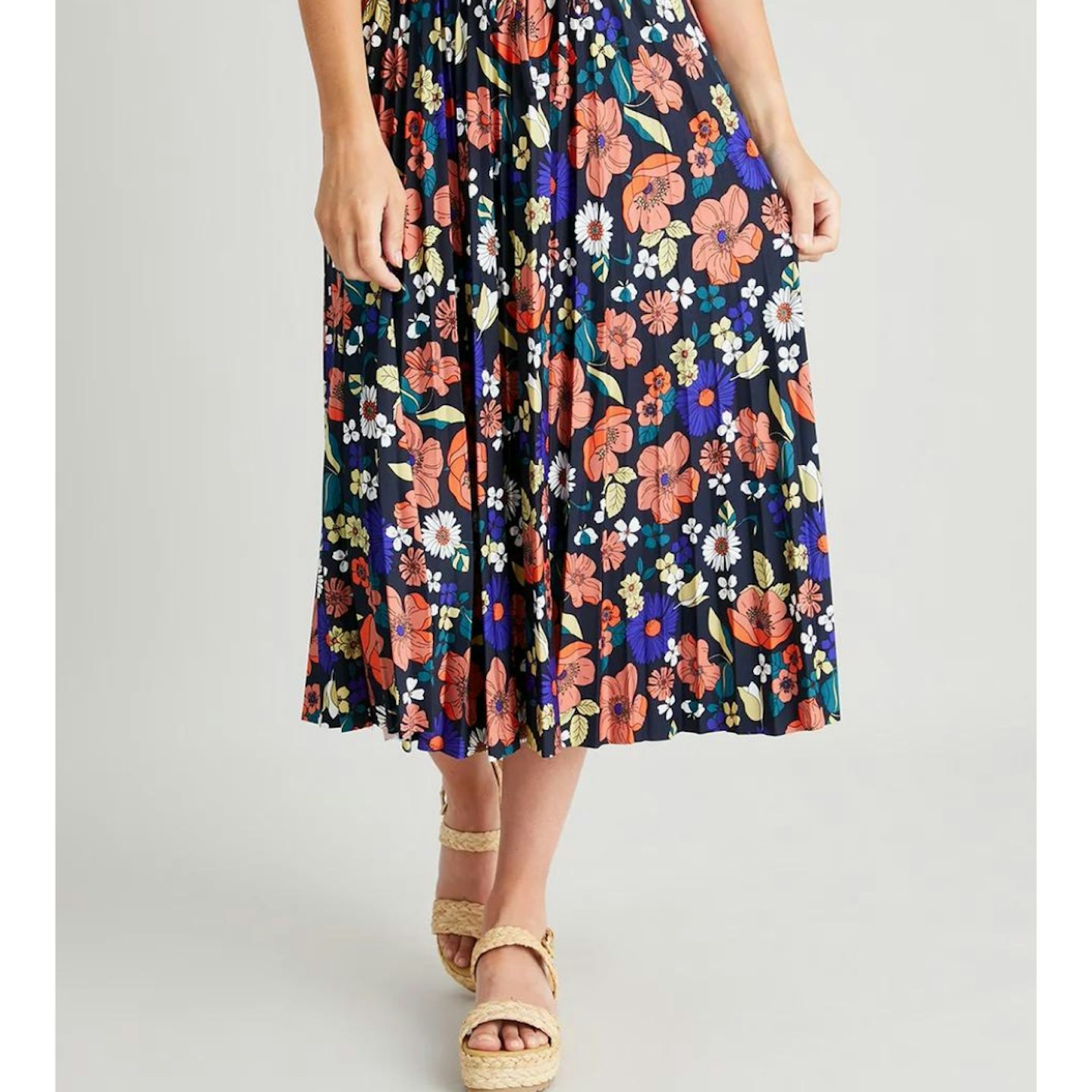
tuclothing.sainsburys.co.uk
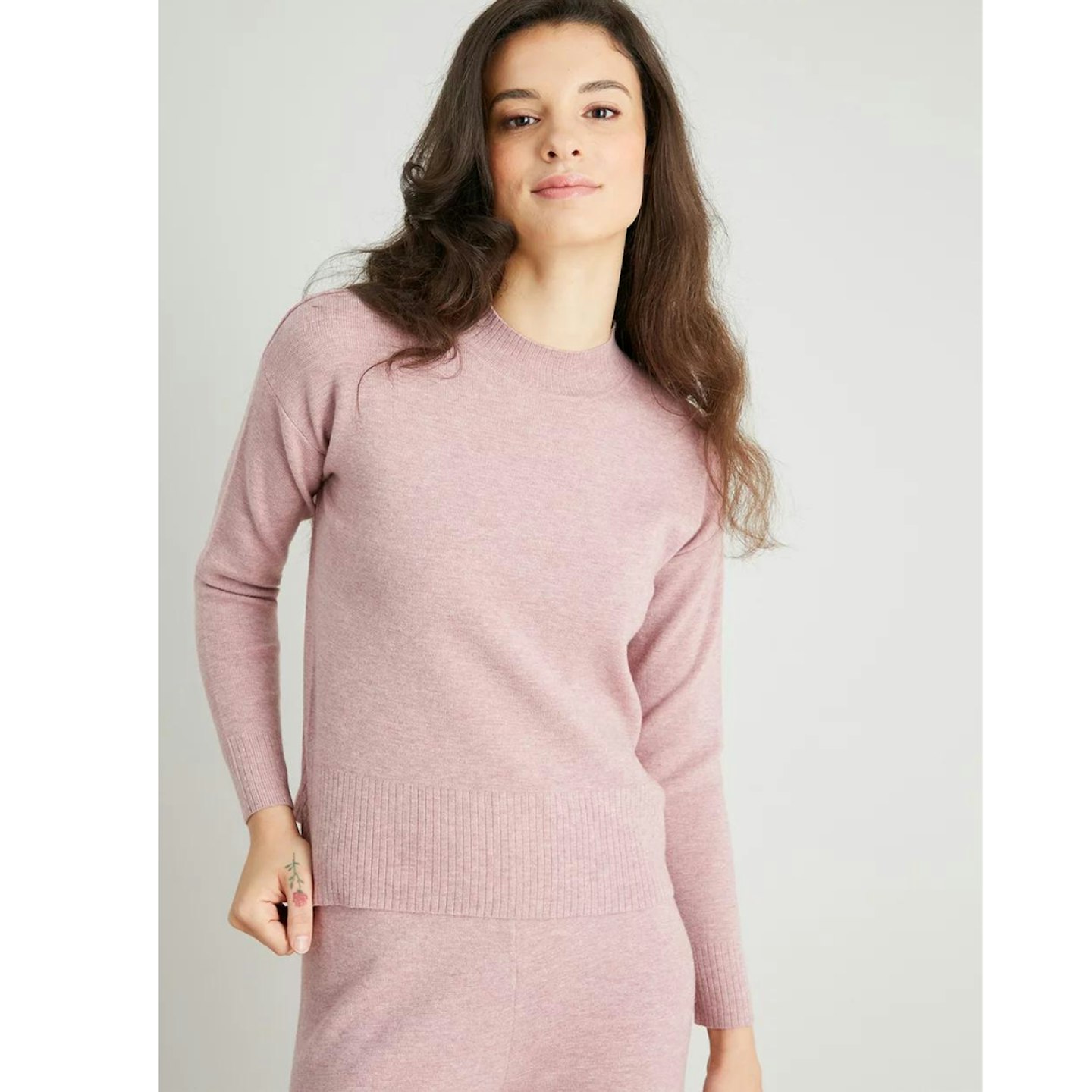
tuclothing.sainsburys.co.uk
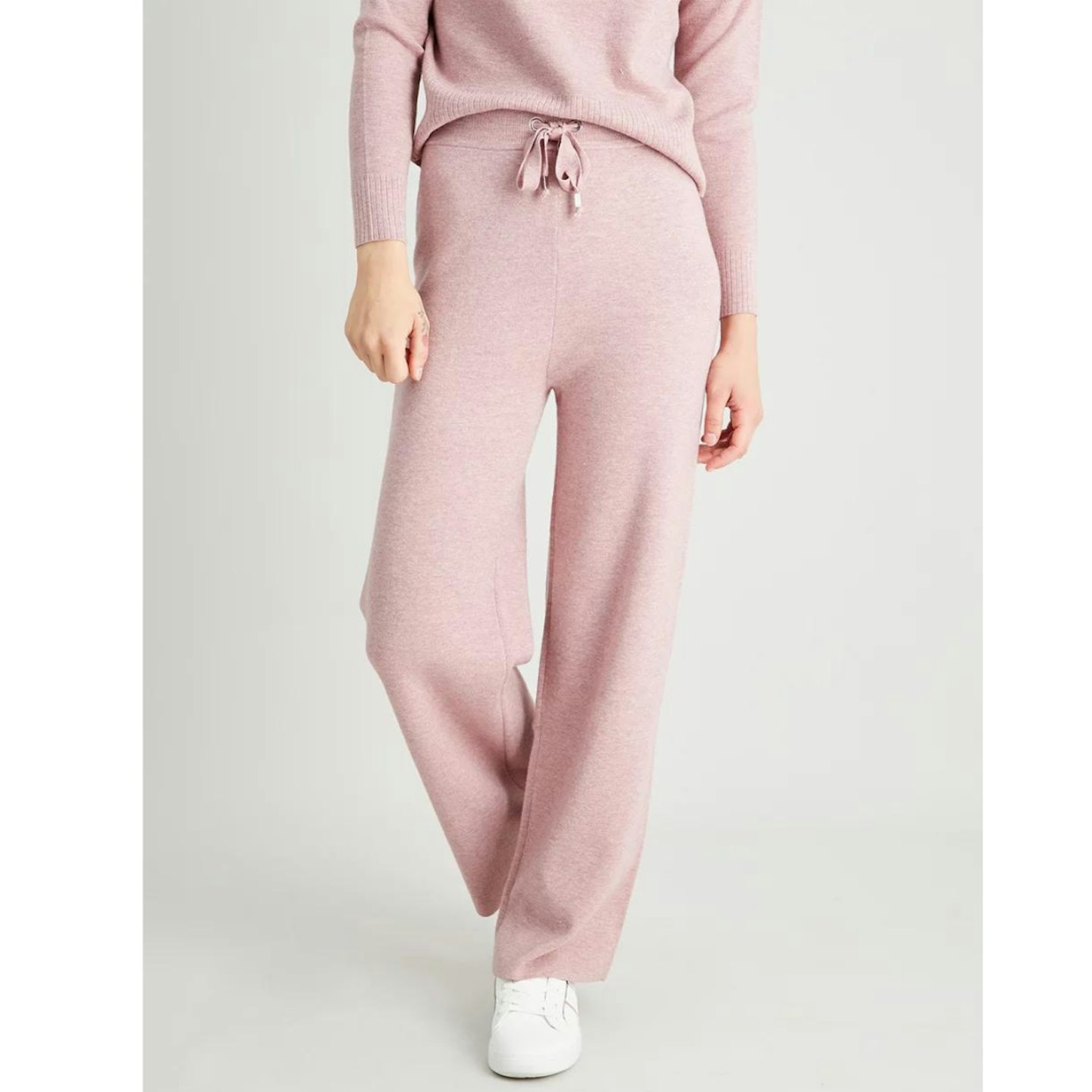
tuclothing.sainsburys.co.uk
